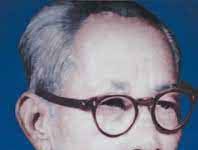Zhuangzi | Brief Biography
Zhuangzi
Zhuangzi, also known as Zhuang Zhou, was a Chinese philosopher and writer who lived during the Warring States period in ancient China, around 369–286 BCE. He is the author of the eponymous book “Zhuangzi,” which is one of the foundational texts of Daoist philosophy.
He was born in the state of Song, in present-day Zhejiang Province. His birth name was Zhou and he later adopted the name Zhuangzi, which means “Master Zhuang.” Not much is known about his early life, and even the details of his birth and death remain a mystery.
Zhuangzi’s philosophy is centered on the concept of the Dao, which is often translated as “the Way.” The Dao is a term that refers to the ultimate reality and source of all things, and it is something that cannot be defined or described. According to Zhuangzi, the Dao is the source of everything, including life and death, and it is something that is always in a state of flux and change.
He believed that the ultimate goal of life was to achieve a state of harmony with the Dao, and this could be achieved through a process of self-cultivation. He argued that people should strive to be like the Dao, to be flexible, spontaneous, and unforced. In this way, people could attain a state of inner peace and contentment, and they would be able to live in a state of constant transformation without ever becoming attached to anything.
He was also a strong advocate of individual freedom and the rejection of external constraints. He believed that people should not be bound by the rules and norms of society, but should instead be free to pursue their own paths in life. He saw the role of the ruler as one of guidance, not control, and he was critical of those who sought to impose their will on others.
One of the most distinctive aspects of his philosophy is his use of humor and satire. He used absurd and fantastical stories to illustrate his points and to critique the views of other philosophers. For example, one famous story from the “Zhuangzi” tells of Zhuangzi dreaming that he was a butterfly, and when he awoke, he was not sure if he was Zhuangzi who had dreamed he was a butterfly, or if he was a butterfly now dreaming that he was Zhuangzi. This story is used to illustrate the idea that there is no fixed reality and that everything is in a state of constant change.
In addition to his philosophical writings, he is also known for his skills as a writer. His writing style is often described as whimsical and imaginative, and he is considered to be one of the great literary figures of ancient China.
Despite his popularity, Zhuangzi‘s life and works have been the subject of much debate and controversy. Some scholars argue that he was a real person who lived during the Warring States period, while others maintain that the “Zhuangzi” is a collection of works written by various authors over a long period of time. Regardless of the debate, however, Zhuangzi’s ideas have had a lasting impact on Chinese philosophy and have been widely studied and admired for more than two thousand years. 0 0 0.
N. B. This article originally belongs to the book, ‘Brief Biographies of Ancient Thinkers and Writers‘ by Menonim Menonimus.
Books of Biography by M. Menonimus:
- The World Writers-Brief Biographies
- Introduction to World Writers
- Introduction to World Personalities
- Love of Reputed Persons ..
Additional Searches:











